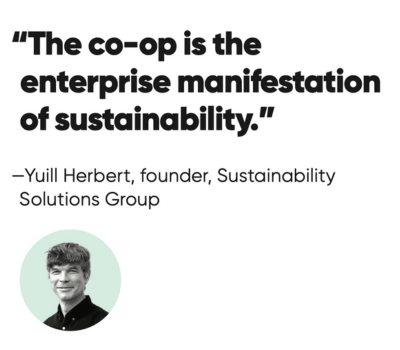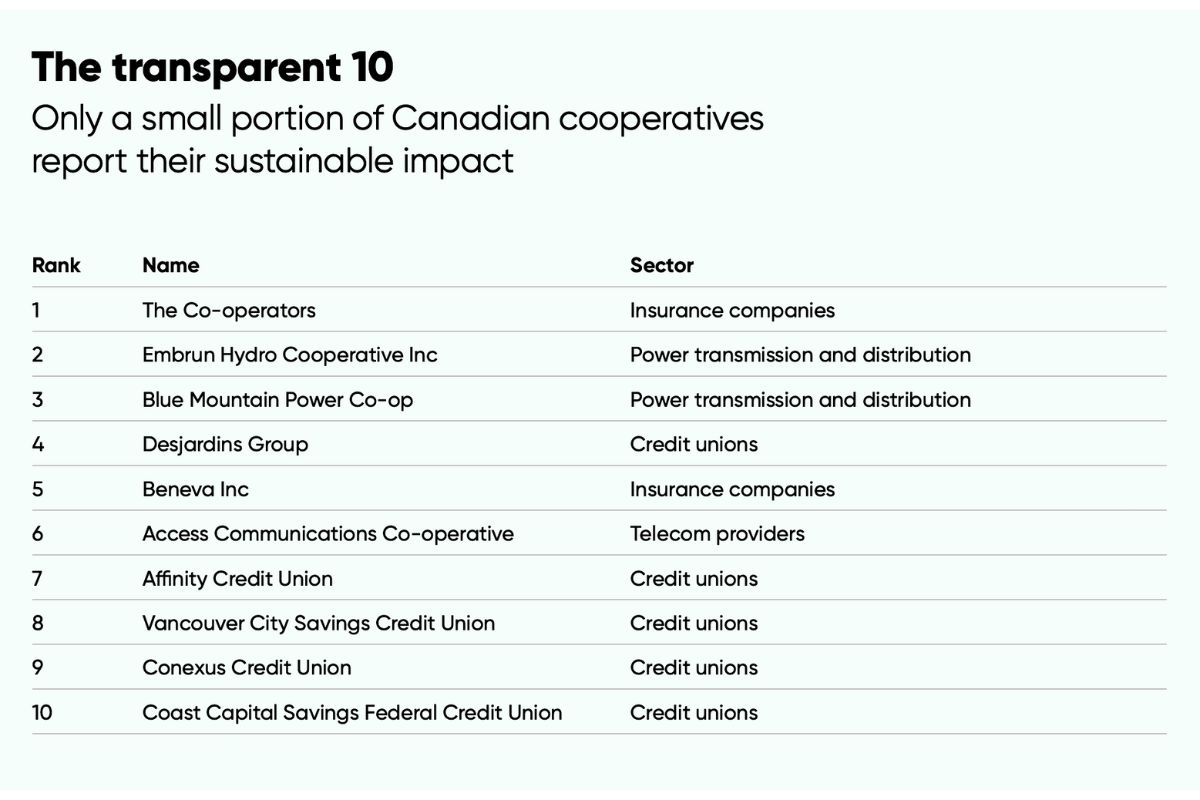Cooperatives have always been leaders in sustainability, but they don’t have a strong track record of showing their impact, research shows. “Co-ops do have a tight connection to sustainability . . . but they hardly talk about it,” researcher Fiona Duguid says. “There’s very little standardized reporting on sustainability in the co-op sector.”
Scale is a challenge when it comes to disclosure. There are around 6,000 cooperatives in Canada, about half of which are non-profits, and many are quite small. They don’t necessarily have the resources to bring a standardized process around sustainability into their operations, Duguid says.
Recognizing the lack of data and the intrinsic barriers, Duguid and fellow researcher Daphne Rixon asked themselves, “Could we help co-ops to do this better?” Together, they set out to build a dashboard to capture the performance of Canadian cooperatives with respect to the United Nations Sustainable Development Goals and the cooperative principles.
 The aim is to create an easy-to-use sustainability tool that enables co-ops to better understand their own sustainability performance and impact and share the results publicly, without adding a lot of work. The platform, called ACT (Accounting for Co-operative Transformation), is backed by the Centre of Excellence in Accounting and Reporting for Co‑operatives at Saint Mary’s University in Halifax and will launch next year.
The aim is to create an easy-to-use sustainability tool that enables co-ops to better understand their own sustainability performance and impact and share the results publicly, without adding a lot of work. The platform, called ACT (Accounting for Co-operative Transformation), is backed by the Centre of Excellence in Accounting and Reporting for Co‑operatives at Saint Mary’s University in Halifax and will launch next year.
Work by the Corporate Knights research group confirmed the limited visibility on sustainable impact at Canadian cooperatives. Out of more than 140 co-ops or credit unions in Canada with annual revenues exceeding $5 million in 2023 or 2024, researchers found that only 11 reported their sustainable investments and revenue. Ranked by sustainable impact, five of the top 10 were credit unions, which have more advanced sustainability reporting because they operate in the financial sector.
Sustainable impact at smaller co-ops can’t be measured by the same standard as it is at large credit unions, Duguid suggests. “It wouldn’t be fair to the co-op sector to think that a small bike co-op, for example, should be investing sustainably,” she says. “Their raison d’être is to provide sustainable transportation, and that should speak more than their investments.”
Sustainability Solutions Group (SSG) is a prime example of the tension between the commitment to sustainability and the absence of data-driven recognition for this work. Founded in 2001 in Tatamagouche, Nova Scotia, the worker cooperative generates greenhouse gas inventories and climate action plans for cities, provinces and states across Canada, the United States and Chile. But with only 50 employees/members, most of whom work from home, the company doesn’t have the capacity to publish a sustainability report.

Despite the lack of clarity surrounding sustainable impact, no one doubts the deep links between the cooperative sector and sustainability. “Most co-ops were invested in sustainability long before it became fashionable,” says Daniel Brunette, senior director of cooperation and engagement at Co-operatives and Mutuals Canada. Recognizing the critical role that co-ops play toward achieving the Sustainable Development Goals, the UN declared 2025 the International Year of Cooperatives.
Cooperatives are a huge part of the economy. So where’s the training?
Yuill Herbert, founder of SSG, says that the co-op’s shared-ownership model is intrinsically democratic and therefore more likely to pursue sustainable goals. “The co-op is the enterprise manifestation of sustainability,” he says.
Despite the existing core alignment with sustainability, the co-op sector still needs to get on board with reporting, Duguid says. “Co-ops should have been first off the mark with all the reporting about corporate social responsibility and ESG,” Duguid says. “Co-ops do really well in terms of social, economic and community [impact], but environmental can be hard for them to tackle.”
“They were doing that originally, and not just in a greenwashing way, but in a real way,” she says. “But they haven’t done a good job of talking about it.”
Naomi Buck is a writer based in Toronto. Mark Mann is the managing editor at Corporate Knights.







